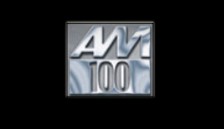Just over half the AM100 companies made a profit in 2008. Total losses were more than double total profits. Take out closure and reorganisation costs, particularly Pendragon’s non-recurring losses of £171 million, and the AM100 just about broke even.
However, although there have been some casualties, the industry has demonstrated its traditional resilience and the number of failed businesses has been lower than some predicted.
Even though economic commentators are still pessimistic about recovery, many AM100 businesses have bounced back in 2009, some experiencing success that would have been enviable even in better times.
To read this article in full with the AM100 tables click here > >
The scrappage scheme has helped many, some more than others. It remains to be seen what effect the return of VAT to the pre-recession rate and the end of the scrappage scheme will bring.
Cashflow will again be under pressure through the winter. Attention to working capital control will be crucial.
The larger groups have closed many loss-making businesses and are seeing the benefits. Others have cut costs and are delivering customers’ requirements with less resources. Manufacturers have either trimmed volume aspirations or found it difficult to decide where to pitch them.
It will be instructive to see whether these developments change the way the industry operates, or whether things will return to ‘normal’.
The scale of the recession can be seen clearly in the change in the size of the AM100.
Turnover in the update tables is calculated using the most recent information available, including interim results of plcs, responses from groups to our questionnaires and 2008 statutory accounts.
On this basis total turnover declined from more than £38 billion in the autumn 08 update to just below £33 billion. Much of this decline was accountable to the largest groups – in particular Pendragon.
However, the picture is not all one of decline. Arnold Clark continued to grow and continued to make profits, albeit down on previous years. Ford Retail also grew its business.
Anecdotally, quarter three of 2009 has continued to see improved conditions. However, the final quarter may see renewed challenges.
But conditions are markedly different from the equivalent period in 2008. Cutbacks at carmakers have resulted in supply constraints for most. The lack of new car sales feeds through to a lack of used cars. So, perhaps for the wrong reasons, there is a chance of a more rational, less ‘supply push’ environment going into 2010. Cost rationalisation does not seem to have prevented groups from operating better.
The burning question is how to sustain the bene-fits of this crisis. Will manufacturers continue to restrain their volume aspirations and refrain from pushing cost into the supply chain? Will groups change their business model? If it has been feasible to lose cost, will that cost merely creep back in as times improve, or will processes change permanently for the better?
It is often said that if you want to see real change, create a crisis. It remains to be seen whether we will make the best of it.














Login to comment
Comments
No comments have been made yet.